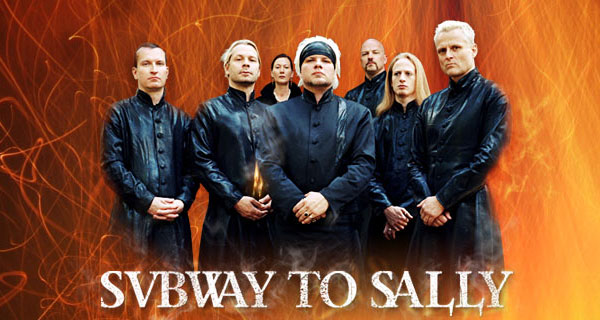Either side of the disastrous Australian tour of India in 2013, much comment passed within and outside the team about the lack of experience contained in the first touring squad chosen after the retirements of Ricky Ponting and Michael Hussey.Among the points raised by certain Cricket Australia figures by way of a response was to say, A lot of these guys have experience in India, they play in the IPL. This was a little bit like saying that a belief in Father Christmas equates to a working knowledge of the North Pole: some vague geographical crossover but little else.Similarly, Australias forthcoming Test series in Sri Lanka has been knitted into a wider story about Project Asia, and the need to adapt to subcontinental conditions in order to succeed here. While it is undoubtedly true that Australia must lift in this part of the world, and that Sri Lanka is a part of the region, a closer reading illustrates that it is too simplistic to suggest the right formula here will work in other parts of Asia.Even a cursory glimpse at Australias record when travelling to face their three major subcontinental opponents bears this out in the most stark of terms. Since 1971 they have won only once - in 2004 - away to India, and only twice away to Pakistan - in 1998 and 2002 - since 1960. Yet over 13 Tests across five tours of Sri Lanka, the hosts have been victorious in just a solitary match, against Australias six victories. That win came after the Australians were left two players short via the horrible collision between Steve Waugh and Jason Gillespie on day two of the 1999 Kandy Test. Rain then curtailed matches two and three, gifting the series to Sri Lanka.It must be said that Australia have not always won their matches in Sri Lanka by vast margins, and, notably in Colombo in 1992 and Kandy in 2004, recovered narrow victories from most unlikely positions early in the game. There is also the fact that numerous Australians have produced something close to career peaks on these tours, in ways many of the same players did not manage elsewhere.Shane Warne was seldom better with the ball than on his return from a drugs ban in 2004, Damien Martyn and Darren Lehmann likewise with the bat. In 2011, Hussey scooped a hat-trick of match awards to help deliver a win for Michael Clarke in his first series as Test captain.But there are undoubtedly other factors at play on Australian visits to Sri Lanka that go beyond the vagaries of individual matches or combatants. These range from matters of climate, mentality and history to the demography of the island nation. All have raised their heads repeatedly, and Steven Smiths men may well capitalise on them once more this time around.Sri Lankas climate and pitches offer just enough assistance to seamers Where India and Pakistan have broken the spirits of numerous Australian pacemen, Sri Lankas tropical climes have always provided that little bit of extra encouragement, whether through the air or off the pitch. Warnes path was often smoothed in 2004 by early wickets to Gillespie and Michael Kasprowicz. In 2011, a deck in Galle prepared ostensibly for spinners was used grandly by Shane Watson and Ryan Harris, who made use of reverse swing and up-and-down bounce respectively.Perhaps the most telling examples actually come from when the tables are turned: Tom Moody never played another Test after being unable to handle the moving ball as an opener in 1992; on the same tour Mark Waugh made four consecutive ducks, earning the sobriquet Audi. Sri Lankas lone victory was set up not by Muttiah Muralitharan but Chaminda Vaas and Nuwan Zoysa, who dropped the tourists to 5 for 40 on the first morning before any wickets fell to spin.Australia seldom lose the patience battle with bat or ball It isnt hard to recall subcontinental days when Australias bowlers have been bereft of ideas on how to claim a wicket: think Dravid and Laxman in Kolkata in 2001, Sachin Tendulkar in 1998 or 2010, or Shikhar Dhawans assault three years ago. But those junctures never seem to come in Sri Lanka, with a wicket seldom more than an hour or two away. That is borne out by the indifferent records of Aravinda de Silva, Mahela Jayawardene and Kumar Sangakkara against Australia. In 2011, Sangakkara was out to Nathan Lyons first ball in Tests and also managed to be winkled out by Hussey. Equally, Sri Lankas spinners have been unable to swarm over Australia in the manner of Anil Kumble, Harbhajan Singh, R Ashwin or Yasir Shah. Muralitharan took plenty of wickets in 2004, but was outpointed by the combination of Lehmanns daring and Martyns doggedness. There is something mental to all this, doubtless linked to…A history of Australian success plays on the minds of both sides Repeatedly, it has appeared that when matches get tight, Australian self-belief overwhelms Sri Lankan combinations briefly but critically afflicted by doubt. Arguably this began in Colombo in 1992, when a mighty first innings should have paved the way for a home win. But Allan Borders team scrounged a narrow lead, before Sri Lankas effort to rush to the target was undermined when a skittish skied one from de Silva was held by a running Border. From there Greg Matthews and a young Warne engineered a great escape, and Australias first win anywhere in Asia for 22 years.Lehmann has spoken on this trip about the need to get a first-innings lead before the pitches deteriorate, but he can also recall winning 3-0 in 2004 after falling behind on first innings in all three Tests. Even the solitary Sri Lankan win only arrived after their shaky chase of 95 was helped by some exceedingly conservative umpiring to deny Colin Miller a clear caught-and-bowled and then a very adjacent lbw appeal. Sri Lankan Test crowds are small A great many spectators filed into the Asgiriya Stadium in Kandy as that victory in 1999 crept closer, but most of the time the atmosphere at Sri Lankan Tests is sorely lacking the sort of noise-inducing claustrophobia that can amount to a major competitive advantage. An Australian player once noted the contrast between sparsely attended South African grounds, where Australia have done well, and heaving English venues, where they have not. The same is true of Sri Lanka, where batsmen can hear each other call, bowlers can hear themselves think, and captains can plan in relative peace. Small wonder Sri Lanka Cricket are committed to raising their Test series attendances above 100,000 by paying attention to venue choices and ground facilities; touring teams eager to silence crowds in India rarely need to worry about doing so here.This time around, Australia should be heavily favoured to win the series anyway as the worlds No. 1-ranked side. Sri Lanka have some sizeable holes in their line-up, given a present dearth of fit pace bowlers and the abiding problem of how to cover for the loss of Mahela Jayawardene and Sangakkara, who are now ubiquitous on billboards rather than scoreboards in this part of the world.But just as Sri Lanka must look hard into the reasons why they so rarely taste Test success against Australia, so the visitors must weigh up what works here and nowhere else. All victories away from home have meaning, but a win for Smiths men in Sri Lanka may mean less in terms of next years trip to India than some might think. Wholesale Browns Jerseys . Laudrup revealed Thursday he was notified of his dismissal in "the briefest of letters which gave no reasons why such hasty and final action was deemed necessary. Cheap Browns Jerseys China . Barcelonas entertaining victory ensured the defending Spanish champions retained their share of the league lead with Atletico Madrid two rounds ahead of their meeting in the capital. Real Madrid needed a late goal by substitute Jese Rodriguez to earn a 3-2 victory at Valencia to stay in third place and three points behind its title rivals. http://www.cheapbrownsjerseyselite.com/?tag=cheap-denzel-ward-jersey . This should be celebrated because it will not always be this way. With the amount of money given to players by their clubs these days, it is a wonder that so many of those teams allow the sport to continue to take away many of their assets so they can play for a different team in the middle of their season. Cheap Browns Jerseys . Peter Gammons, an analyst for Major League Baseballs network and website, drew the ire of hockey fans on Sunday when he criticized the two NHL teams on Twitter for their physical game the night before. Antonio Callaway Jersey . Ryan Garbutt had a goal and two assists as Dallas snapped a six-game losing streak with a 5-2 victory over the Edmonton Oilers on Tuesday night. Watch and read part one of the interview hereThe 2007 World Cup was a very successful campaign for you. Sri Lanka reached the final, but there was the issue of leaving Marvan Atapattu out of the playing XI. That created a lot of controversy at the time. Can you recall how those days went and whether that affected your relationship with Atapattu? Yeah, Marvan was our captain and he should have been leading the team in the 2007 World Cup. But because of his back injuries, I took over for a short period. Then the selectors and the coach, Tom Moody, decided that I should lead the team in the World Cup.At that time, Upul Tharanga was scoring plenty of runs. He and Sanath Jayasuriya were explosive and winning matches for us. We had a very good middle order in [Tillakaratne] Dilshan, Russel Arnold and Chamara Silva, who were scoring lots of runs. When we went to the Caribbean, Marvan was part of the team because we felt that we needed the experience. We played New Zealand in a warm-up and Upul got a hundred, Marvan got 20. Tom and I had the chat with Marvan when we got back to the hotel and explained to him why he wasnt going to start the World Cup as an opening batsman.How did that conversation go? Well, I think he did not take it in the right way, but I felt for us to make an impact in that tournament, Sanath and Upul were the best two openers to go with. Marvan is a very honest player. He played really hard, but he didnt take it in the right spirit, so throughout the World Cup, his contribution wasnt very good as a member of the team. But we had a great campaign. Everyone thought well probably go out in the group stages, but we topped the group and went as a second-best team in the Super Eights stage and then all the way to the final.When we got back, Marvan played a few more Test matches and retired. He didnt speak to me probably for a good four to five years after that. Our first conversation probably was when he was appointed the batting coach of the national team.I guess he had no choice but to resume conversation? Yeah, but I felt I hadnt done anything wrong. I remember there was another conversation we had in England with the team management and he was there as well. He said he didnt take it in the right spirit and for him not to speak to me for four years was something that he regretted and he apologised for that. That was enough for me. We got along well after that. He was with the national team for a good five to six years after that and became head coach of the team.There was one player who was always going to be in the team and that was Muttiah Muralitharan - at his peak the best bowler in the world and your main weapon. Did handling him as captain present its own set of challenges? Murali was a very simple man. He is probably the first guy to take the newest player in the team for a dinner. He did that with me when I joined the team and he did that with the youngest guy who came when he was retiring. So you didnt have any issues with Murali. The more wickets he took, the more humble he was, and it was so easy to work with someone like Murali. Yes, hes a bit stubborn when he is bowling and he wanted certain things done, but we always had constructive conversations.A carefully chosen word. Yeah. Hes got a very defensive mindset as a bowler. He wants to take his time. Murali was a defensive bowler but he had everything covered. I was a different captain. I wanted to attack with Murali more and Murali only attacked when he felt he was in control of the situation. I wanted to use him in a different way. I wanted to create opportunities for him rather than us sitting and waiting for an opening.I think Arjuna [Ranatunga] and Sanath probably had the same battles with Murali [that I did]. But with Arjuna, because Murali was young and just coming through, he probably didnt have a choice. But it was quite tough for Sanath to tell Murali, lets attack. Ive encouraged Murali, but weve always found a middle ground.Can you remember plotting a dismissal or plotting a passage of play where you told him, See, I told you we could do that and youve done it.? There is one incident. I wasnt the captain, Hashan [Tillakaratne] was. England toured Sri Lanka in 2003 and we played a draw in Galle. We couldnt get the last two wickets and the game was rain-affected.Then we moved to Kandy for the second Test. We batted first, got 300-350 [382]. England scored about 225 [294]. On the fourth day, when we had a 275 to 300-run lead, I said to Hashan, You know, its Kandy, I am not sure how the weather is going to be tomorrow. I think the wicket is slow, its turning. Weve got 275 now. I think its more than enough because England is going to be very defensive. They want to save this Test match. We should be declaring straight away.Muralis got ears like elephants. He came rushing in and said, I know what you are saying to Hashan. You want to declare now. Youre not the one who is going to bowl. Im the one who has to bowl. We need 350-375 runs because then the England batsmen know they cant score.I said, 275 is enough. They are still going to defend. They arent going to play shots. He said, Yeah, but you dont know that. If you declare now I am not going go bowl. You can bowl. And he walked off. So Hashan didnt declare. We batted for another hour and a bit more and got [a lead of] 368 and declared. I remember Chaminda [Vaas] picking up a wicket. The next day England scored 170 [196] and we drew the Test. They just blocked and blocked and blocked. I remember a huge incident with Nasir Hussain sending for gloves. It was very unlike the English. But the match ended in a draw. After the match, Murali was in a corner not saying much and Hashan was really upset that he didnt make the early declaration.On the advice of a youngster… We had other guys who wanted as well to declare. Murali realised at that point how effective he is and that we missed a trick. But luckily we went to Colombo and beat England and won the series 1-0.Did you let him know? I did. I was young, a bit of an arrogant guy in the dressing room as well, so I told Murali, remember this, I told you so. Murali did that and we managed to win the next Test, so everything was fine. But I think after that Murali realised the potential he had. We managed to get him out of that very defensive mindset and he became one of the best bowlers.Another great player in that Sri Lankan team of the 90s was Sanath Jayasuriya. As he was finishing his career, there were difficulties in phasing him out of the team. Was that another tricky time for you as captain? Yeah, it was a tough decision. In one-day cricket Sanath was quite solid when I led the team in 2007 to the Caribbean and even afterwards. His decline was in Test cricket.When Tom Moody took over in 2006, we toured England. Leading up to that series, in 12 months Sanath was averaging something around 12 [18] as opening batsman and he was exposing Sanga [Kumar Sangakkara] quite early. So we left Sanath out for that tour of England for the Tests.At Lords, we had to bat out of our skins to save that Test. I think eight players got fifties or more. After the game we came back to the hotel and saw Sanath in the hotel lobby checking in. The sports minister had signed off that Sanath is going to be part of our tour party. Thats how Sri Lankan cricket politics works, and thats something I had to deal with as a captain. I dont blame anyone for that, but that is the culture. I think we played him in the third Test because it was a spin-friendly wicket. We utilised him as a spin option and batted him at No. 6 and we won that Test.We had a bit of a friction in making that decision and him not accepting that. I felt that was the right thing to do. We always had frank discussions with the players [we were dropping] and then explained to them why. As a leader you have to make the hard choices. Sometimes it might not work in your favour, but you have to accept that you made the calls with the right intentions.Did the administrative issues wear you down? Yeah, it definitely wears you down. The three or bit more years that I was the captain I didnt enjoy probably half the time I had the job. It was too much for me to handle. If I had continued to captain, I would have probably retired much earlier, because it was way too much - the administration, the things we have to go through trying to get our contracts, trying to get little things done, select the best XI.Sri Lanka is the only country where the sports minister selects the selectors. Sri Lanka Cricket doesnt have a say in that. Even when you select the team, youre not sure until that signature is put on that piece of paper whether its approved or not. The selectors are under the guidance of the sports minister so they dont have to explain anything to Sri Lanka Cricket.I still dont understand and I didnt understand that as a captain as well. I was taking work home, in the sense that when I went home, I was still thinking about issues and scenarios thhat I have to deal with the next day or coming weeks, and its something that I didnt enjoy doing.dddddddddddd I enjoyed the cricket, the challenges I had on the field and the group that I had was brilliant, but everything else wasnt something I enjoyed.Yet you made attempts to inject some reform into Sri Lankan cricket. You tried to introduce a system of contracts. Youve got a blueprint ready for first-class cricket. I felt that as a captain I had certain responsibilities towards the players and to change the culture. I felt that doing that will help the team in the long run. I shouldnt take [all the] credit. I think even the time when Sanath took over as captain, he made quite a few changes and kept on improving.The contract structure we had, the different payment systems we had for seniors and juniors was something that Kumar and I did not enjoy as young cricketers in that set-up. When we got the responsibility of making those decisions, we made some drastic changes to our slab structure and how people were being paid, and to try and be transparent and fair to other players. We introduced a lot of new things into our contracts - where families are looked after, or families can travel with the players. That gave a lot of comfort to many other cricketers.I tried to be proactive in telling Sri Lanka Cricket about the areas where we need to improve. When Aravinda [de Silva] came into the administration, he was the first one who tried to come up with this provincial cricket [system] because he felt that club cricket wasnt improving our cricket. That was in 2004. We played in that provincial tournament and I really enjoyed that cricket. It was a very competitive set-up. Two years later when [that administration] was removed, the tournament died. I wanted to keep it going. I tried to explain to them why we need that structure, but because I was a contracted player, I couldnt go beyond a certain protocol and voice my frustration. Right now I can voice my frustration and I have voiced it, because Sri Lanka has a lot of talent but the progress of players is slow compared to other countries.There was a phase when Sri Lanka got to lots of tournament finals - 2007, 2011, two World T20 finals [2009 and 2012] as well. But all those finals ended in defeat. As a leader in that team how does that play out? Does it scare you when the final comes on the horizon again? It was a hugely disappointing time when we lost all those finals. But we took every final and realised the good things about it. Thats why weve been consistent for a long period of time. We had a good group of players and our thinking processes were good. Our planning for the World Cups and the teams we picked were good. We knew we were doing the right things. We were winning matches in big tournaments, holding our nerve in crunch games. But not winning the final was a huge problem for us. We wanted to find out why we were not mentally prepared for a final. In a couple of finals, individual brilliance of one or two players took the game away from us. But there were a couple of finals where we probably made a few mistakes in decisions or we couldnt execute our game plan. Those are things we spoke about and encouraged ourselves to just keep that focus. Well win the next final. It didnt come until 2014.Was that an aspect of captaincy that you enjoyed a lot - the planning, how you are going to approach a batsman with plan A, plan B, plan C? I really enjoyed that and I think the team enjoyed it as well. We gave a lot of roles to different players. They have to be responsible for coming up with certain ideas and we refined it and executed it. We would have one or two or three plans against certain players. If one doesnt work, we go for the next one. I have always had a theory that as captain if your gut feeling tells you to do something, do it on the field rather than coming back and regretting not doing it.Can you remember an incident where that happened? Quite a few times. One was in the 2007 World Cup semi-final against New Zealand. We got an early wicket from Lasith [Malinga] and then they were going after our quick bowlers. Murali bowled two overs and they looked comfortable because they had got into a rhythm. I felt nothing was happening. I wanted to throw the ball to a part-timer because New Zealand were in a good mood, so they might try to take a chance and we could sneak in a wicket. So we bowled Dilshan and Scott Styris came down to hit him, and got caught at short midwicket. That was one instance when I felt that a part-time bowler, who they might not take so seriously, might work for us, and it worked.Theres a lot of talk that goes around the circuit about Sri Lankans supposedly being nice guys. But sometimes when you talk to players they say the Sri Lankans gave it back to us as good as they got. Was that something you talked about, or was this a generation of younger, more confident players who you didnt feel like you needed to restrain? Thats something Arjuna started. He was very feisty and he gave it back to some of the opposition and we realised that sometimes they dont take it properly and actually make mistakes.And then, like you said, the younger generation were a confident group of players. We were winning matches, competing overseas and doing well in big tournaments and World Cups. Once you get that kind of confidence, when a team tries to play those mind games, we felt its time we take them on. And more often than not, we realised that we were winning those battles as well. We didnt encourage guys to do it all the time. Were you a contributor too? Very much so, but not in a way that people could see me contributing. Sanga was quite influential in that department, because he was quite cheeky. He didnt confront people, but in his own little way he knew exactly how to get under their skin.Was Angelo Mathews identified as the heir-apparent and you worked diligently, religiously on the idea of ensuring that Sri Lanka had a readymade captain by the time you and Sangakkara left? Yes, I think it was our responsibility, and he was a Sri Lankan Under-19 captain. When he joined the national team we straightaway realised that he doesnt get flustered by situations as a batsman. He manages to find a way out and, most often, on a winning note.We felt he was the guy and we made sure that he was given more responsibility within the group even as a young player. When Kumar gave up his captaincy for pretty much the same reasons I did, we wanted Angelo to take over. We felt he was ready. But they gave it to Dilshan for a little while. When they wanted me to take over again, I insisted that they give it Angelo, but then the situation of the team wasnt good enough for Angelo to take the captaincy. So I had to step in for 12 months. That was my contract. I said, January to December, thats it, and the only way I will take it is if they give Angelo the captaincy once I finish. At the end of 2012, Angelo took over as the national captain and, I think, so far hes done a very good job. Yes, with the players around him, itll take a bit of time, performance wise, to settle, but I think they are heading in the right direction. Is T20 cricket harder to captain than the longer formats? It is, because it goes at a very fast pace and that is something you have to adapt to as a captain. We always have to be a couple overs in front of the game, especially on the field, because in a T20 game four balls or three balls could change the entire game. Tactically, you have to react very quickly. You need to have an understanding of what the oppositions options are and try to use what youve got to disrupt that momentum.Are there any players you see around the circuit today who impress you as captains? I think anyone who thinks differently I always admire, because you are creating doubts among the opposition, like field settings sending different batsmen at different times, changing the dynamics of the opposition and how the other team reacts to those things.Brendon McCullum was one guy in the last few years who has been quite good at that. MS [Dhoni] has been very good, especially the way he changes bowlers and how he attacks. I think, to a certain extent, even Kane Williamson, who came into this World T20 as a young leader - I was quite impressed.Do you sit back in bed watching a match and say, I wouldve done that? Its the biggest problem I have watching cricket, because Im very analytical in watching the game and I dont enjoy that much. So I try not to watch cricket unless its a very good game. Ill watch other sports and Ill just flick through the channel to see what the scores are and go back again, purely because I analyse it way too much and I dont enjoy it as a neutral or a retired player.Watch ESPNcricinfo Talking Cricket at 9.30pm IST on Fridays and the repeat on 12 noon on Sundays on SONYESPN Wholesale NFL Hoodies Cheap Jerseys Cheap NFL Black Jerseys NFL Jerseys From China Cheap NFL T-shirts Youth NFL Jerseys Cheap Discount NFL Jerseys ' ' '

 | 2.253 Beiträge
| 2.253 Beiträge






















































































 Forum Statistiken
Forum Statistiken


 Antworten
Antworten Besucher
Besucher